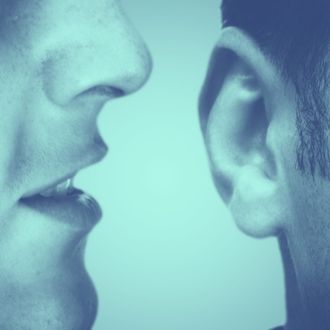
Hearing voices has long been considered pathological, typically as a sign of serious mental illness. But as STAT reports this week, not everyone sees it that way. Writer Shirley S. Wang gives a fascinating overview of the small but growing number of support groups — there are 90 in the U.S. — which argue that, while it’s not the best option for everyone, some people can learn to like the voices in their heads.
Such groups, Wang writes, give people practical advice about coping mechanisms, “including trying to set up appointments to talk to the voices at periodic intervals — and wearing headphones while doing so, so it will look to the outside world like you’re simply talking on the phone.” Instead of ignoring the voices, some people find that “once they engage with the voices, their mental health improves — and the voices become nicer as well.”
There seems to be a growing interest in the notion of healthy voice-hearing. Last month, The Atlantic published a piece on the psychics who have happy relationships with the voices in their heads; earlier this year, a study found that about one in five readers surveyed say they can hear the voices of fictional characters bouncing around in their heads long after they’ve finished a book. Also of note: a 2015 paper published in The Lancet, which argued that writing a novel can be thought of as a form of voice-hearing. The essay opens with a quote from David Mitchell, who has compared novel-writing to having a “controlled personality disorder … to make it work you have to concentrate on the voices in your head and get them talking to each other.”
Wang does (briefly) touch on the dangerous side of hearing voices:
In one seminal U.S. study of 1,410 people with schizophrenia, those who experienced hallucinations, including hearing voices that others don’t hear, were more likely to commit serious violence, though the overall likelihood of violence was still low, according to Jeffrey Swanson, a professor of psychiatry and behavioral sciences at Duke University. He was a co-author on that paper, published in 2006 in the Archives of General Psychiatry.
The central question here is whether the issue is causing the person who hears the voices to suffer, or whether it could endanger others. But for some, the idea of engaging with the voices, instead of trying to silence them, gives the person hearing them a welcome sense of agency. Dr. Dirk Corstens, a Dutch psychiatrist who supports this alternative approach to handling these voices, told Wang, “For us, voices are a signal, they are something that tells you about your life. You have to listen to [them]. Not obey, but listen.”




